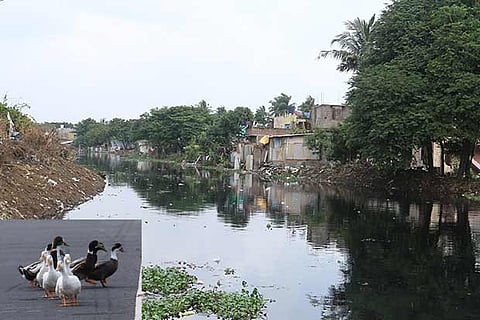

Chennai
The trust has also got the tribunal to direct the State to file a status report as to how the Rs 20 crore allocated for the lake’s improvement has been utilised. Besides rampant encroachments, the Korattur lake has turned into a dump for industrial effluents, untreated sewage and garbage. The lake, which was originally spread out to an extent of 990 acres with rain water and surplus water from the Ambattur lake being the source has now dwindled to a mere 594.2 acres.
Even the lake bund which was 10 feet has reduced to a mere two to three feet posing a danger for people living nearby. Besides, the failure to clear aquatic plants like Eichhornia crassipes and Pistia, which clearly indicates that the lake water is most polluted has also been given a go by. The said aquatic plants and other pollutants have given rise Chironomus plumosus larvae (insect) otherwise called as midges or blood worm breeds rapidly and spreads over the area causing health hazards for people. D Kamatchi, council appearing on behalf of the trust, said “The worst part is the dumping of effluents by the industries situated around the lake. The industries generate and emits most dangerous solid waste, effluents and putrefying chemicals which contain lead, arsenic, mercury, iron, hydrogen sulphate and others, which directly flows into the lake making the water change from bad to worse.
Moreover, the pumping station at the Ambattur Industrial Estate does not have sufficient capacity to treat the effluents let out by the industries and the said pumping station is also not in working condition.”
Ducks stay on banks
Following complaints from locals that a huge number midges invaded homes surrounding the lake, the city Corporation released around 200 ducks into the lake. The ducks which were expected to eat the larvae of the insect, have chosen to spend more time on land and were seen on the banks as well as on roads close to the lake as the water is probably too polluted even for these birds.
Visit news.dtnext.in to explore our interactive epaper!
Download the DT Next app for more exciting features!
Click here for iOS
Click here for Android